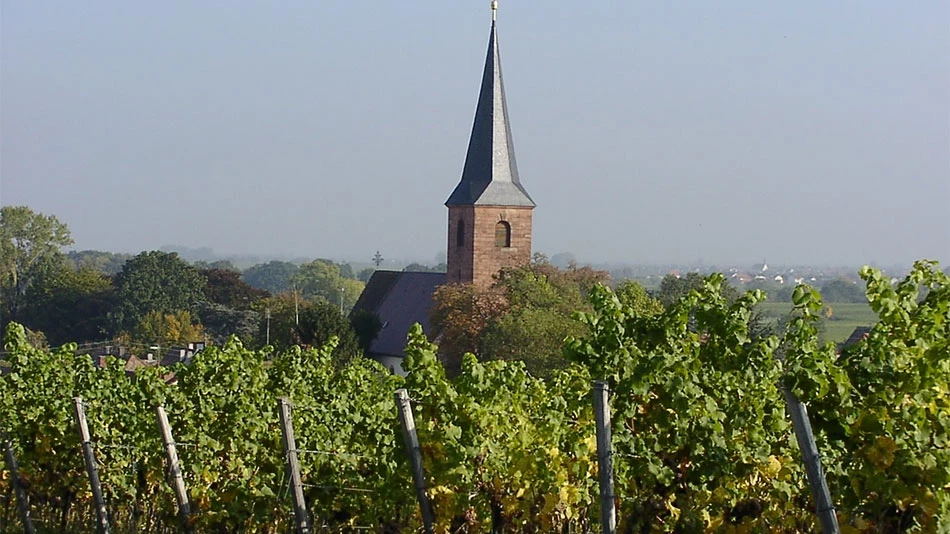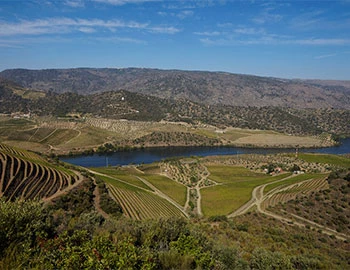Dr. Bürklin-Wolf / Fam. Bürklin
White wines from Dr. Bürklin-Wolf / Fam. Bürklin
Sweet wines from Dr. Bürklin-Wolf / Fam. Bürklin
from Dr. Bürklin-Wolf / Fam. Bürklin
The Pfalz (Palatinate) region is often, and rightfully, called the German „Tuscany", where even the Romans felt very much at home. A mild climate prevails under the protection of the local forests, which allows almond, fig, pine and cypress trees to thrive and also grant the landscapes with a Mediterranean touch.
The tradition at the Bürklin-Wolf winery dates back to 1597 and is today lead by Bettina Bürklin-von Guradze. The spacious and prestigious estate can be found in charming Wachenheim on the wine route. Visitors are always welcome for a tasting at the Vinotek (www.buerklin-wolf.de). The vineyards, mostly planted with Riesling, are located around Wachenheim and the surrounding villages on parcels baring odd names like Ungeheuer (Ogre) or Gerümpel (Junk).
A particularity of Pfalz is the fantastic diversity of the terroir. When one knows how important the origin is for the quality of a wine (and especially for the Riesling), the domain decided to follow a Burgundy pattern to define their parcels. The most exclusive ones are the Grand Crus (G.C.), which allow the real personality of a wine to develop during its long and fascinating life. The wines from the precious Premiers Crus (P.C.) reflect their origins and are just as unique, though less exclusive, as their Grand Crus counterparts.
Bettina Bürklin-von Guradze sees the use of the biodynamic agriculture as the winery's best tool to express the specific properties of each appellation of origin. Also the simpler local wines and the much-loved Gutsriesling, which originates from different parcels, receive the same care and attention. The winery is part of the Syndicat International des Vignerons en Culture Bio-Dynamique (Biodyvin) and gets its certification since 2005. The Pfalz has much to offer when it comes to cultural landmarks, recreation in the free nature and, of course, countless oenology and culinary places of interest. The nearby Restaurant Hofgut Ruppertsberg is an address one simply shouldn't ignore (www.dashofgut.com).

Producer

Dirk van der Niepoort
Dirk van der Niepoort - great ambassador of the fantastic wines from the Douro Valley, is also active and creative in other Portuguese wine regions. His dream has long been to make wines in the microclimates of the Alentejo and Dãoos. The talented self-made winemaker, who likes to wear a hat, found what he was looking for and his crazy idea in these crazy times took shape in the form of Crazy Hatter wines.

Bodegas y Viñedos Artadi de Laguardia
In Rioja Juan Carlos López de Lacalle, oenologist and founder of the Artadi group, has succeeded in making unique wines in an exciting and creative way. This is not least thanks to a distinctive style and his passion for environmentally friendly viticultural methods, which guarantee the future of winemaking and the authenticity of his wines.










